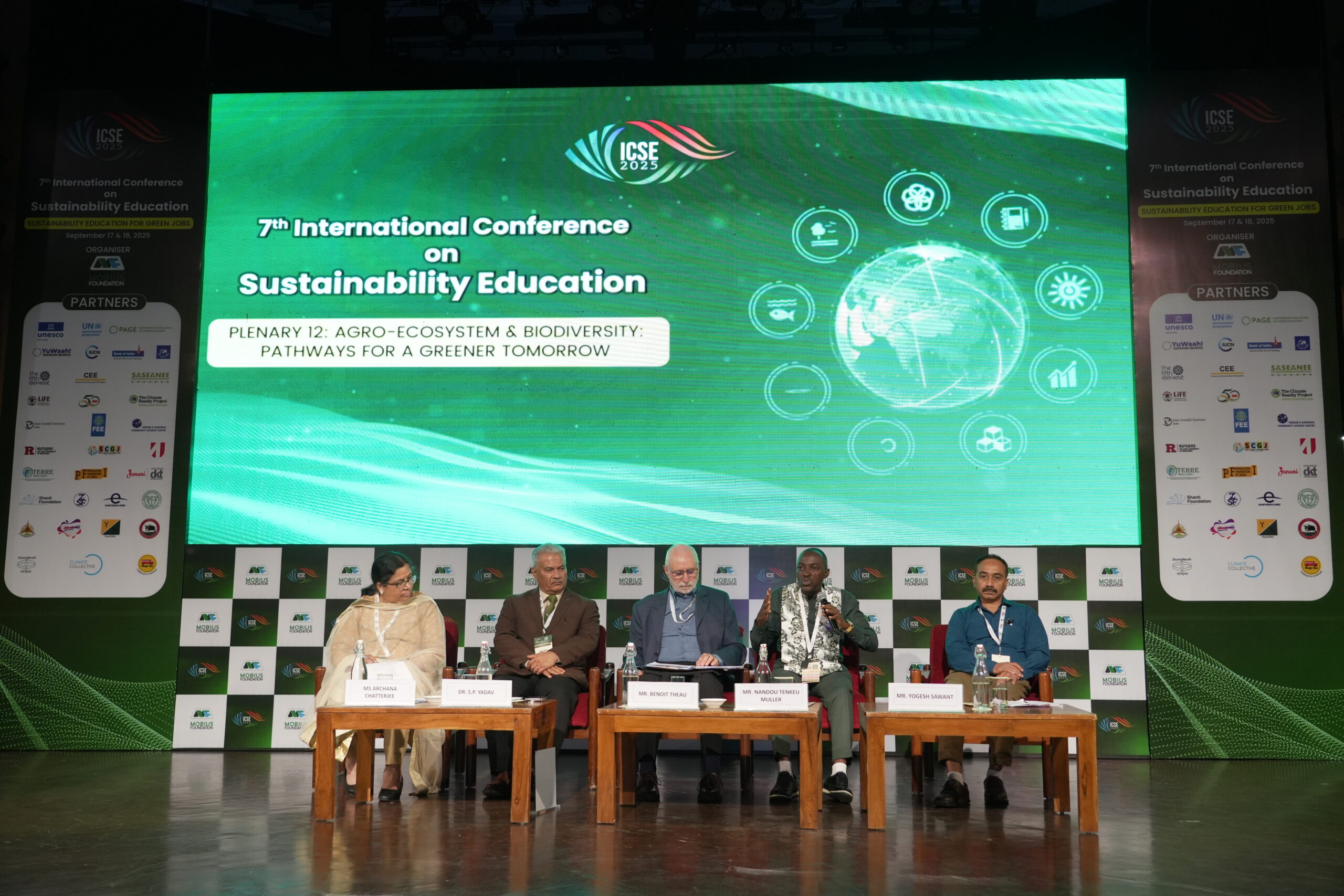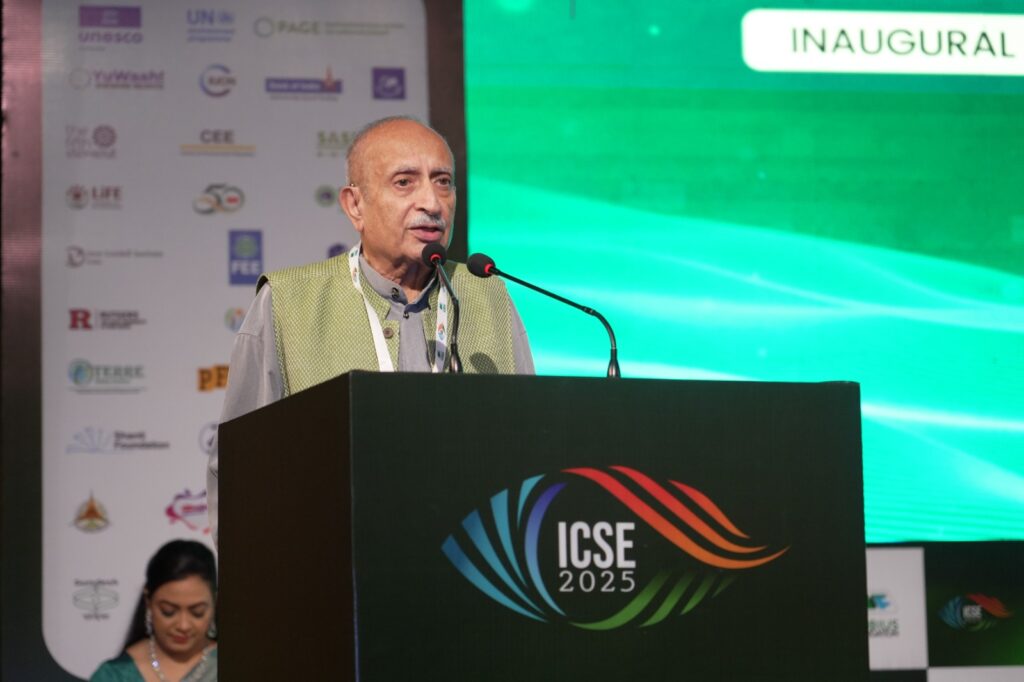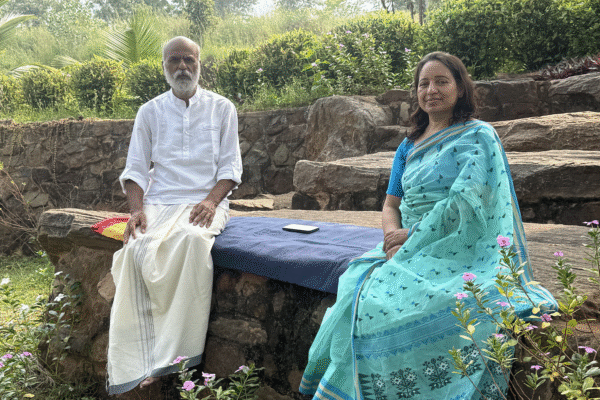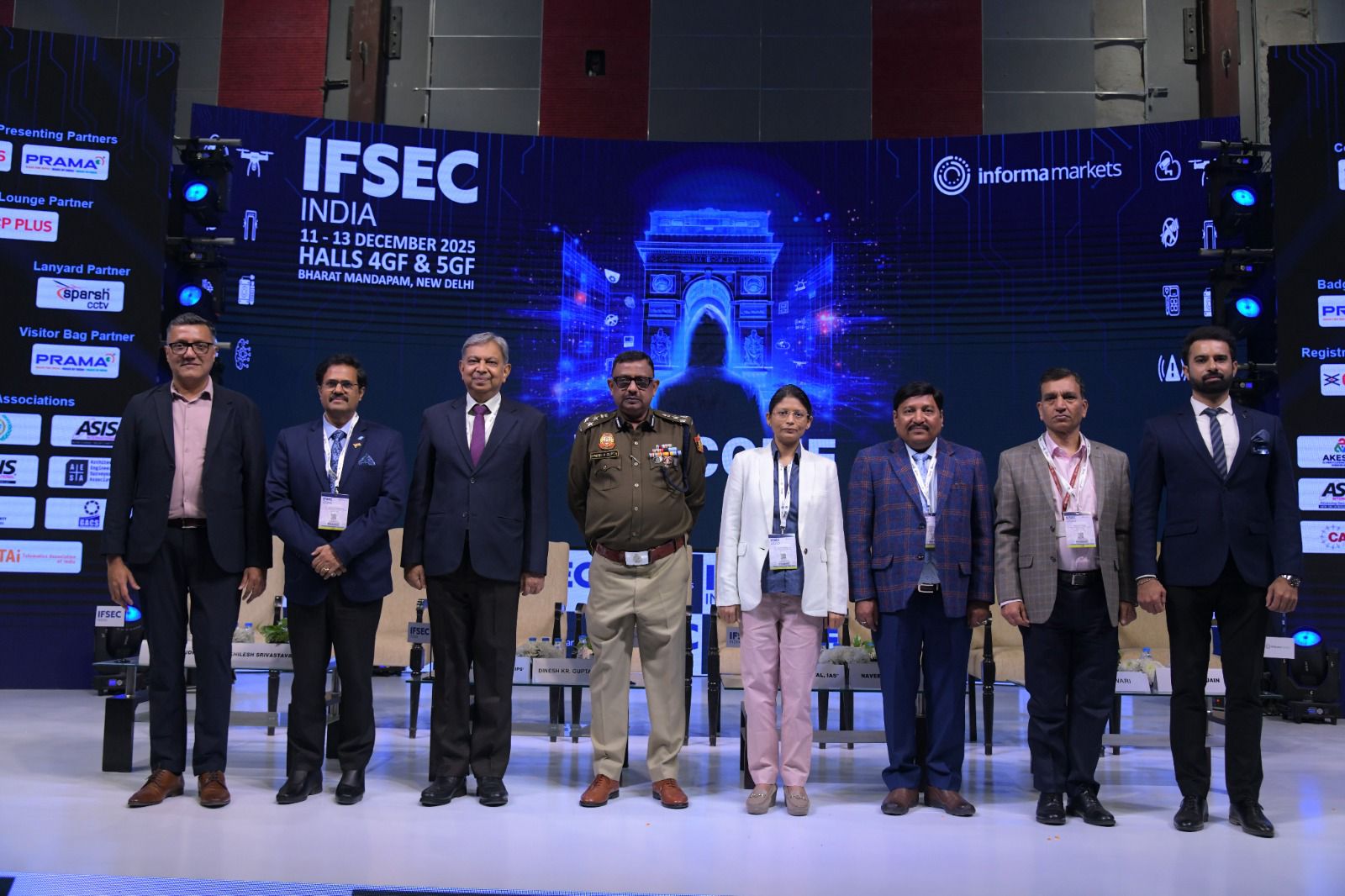

Sustainability Education for Green Jobs: Turning Promises into Ground Level Change
India is at a critical juncture in its climate and employment journey.
Sustainability Education for Green Jobs offers a path to tackle both challenges together.
As green sectors grow, the skills gap continues to widen across regions.
ICSE 2025 brought sharp focus to bridging policy and practice through green learning.
India stands at a turning point. On one hand, it leads in renewable energy production. On the other, millions of young Indians remain unaware of the opportunities emerging in the green economy. At the 7th International Conference on Sustainability Education (ICSE), held in New Delhi, stakeholders came together to address this gap. Their goal was clear: make Sustainability Education for Green Jobs a nationwide reality, not just a policy talking point.
The timing could not be more urgent. Climate deadlines are closing in. Meanwhile, automation and fossil fuel decline are reshaping the employment landscape. According to government data, India needs millions of trained professionals to meet its net-zero targets. But education systems have yet to align with this demand.
Union Minister for Environment, Forest and Climate Change, Bhupender Yadav, set the tone at the conference. He said, “India is taking tremendous strides to shift from fossil fuel dependence to renewable energy sources. Achieving the goals of the Paris Agreement will require collective effort.” His statement reinforced the importance of collaboration between government, academia, and industry.
However, collaboration alone won’t be enough. We must now focus on practical actions to bridge the gap between green job aspirations and ground-level readiness.
Embed Green Skills in Every Curriculum
First, green education must start early and stay consistent. Schools should introduce climate literacy and sustainability modules at the primary level. Colleges and technical institutes must teach students about solar energy, climate-smart agriculture, green architecture, and circular economy models.
This approach needs to move beyond textbooks. Students should gain hands-on experience through school projects, internships, and local green initiatives. These real-world experiences will prepare them for job roles that didn’t exist a decade ago.
Pradip Barman, Chairman of Mobius Foundation, captured this urgency. “Sustainability education is not just relevant—it’s essential. ICSE has become a crucible where ideas are shaped into practical solutions,” he said. His foundation has already implemented rural education programs that connect sustainability to employability.

Pradip Barman, Chairman of Mobius Foundation
Bring Green Learning to Underserved Areas
Secondly, rural and semi-urban India must become part of the sustainability conversation. At present, green training programs concentrate in urban centres. This leaves a large population excluded from both opportunity and awareness.
To fix this, governments should create regional sustainability learning hubs. These centres can offer short-term certifications in solar installation, rainwater harvesting, organic farming, and green construction. Scholarships and digital infrastructure will ensure broader access.
Moreover, training must reflect the local job market. What works in Delhi may not work in Bihar or the Northeast. Education planners must localize course content and delivery methods.
Strengthen Industry-Academia Linkages
Another key to success lies in aligning education with employment. Institutions must collaborate with green industries to design market-ready courses. These partnerships can provide job shadowing, mentorship, and internships that prepare students for the workforce.
So far, few Indian universities have embedded sustainability into core academic streams. That must change. Green jobs are no longer niche; they are the future. Companies involved in renewable energy, EV manufacturing, water management, and waste recycling are all actively hiring—but struggling to find skilled workers.
Use Technology to Scale Sustainability Education
Technology offers an opportunity to scale impact. Online platforms can deliver green content across geographies, even in remote villages. AI-based platforms can personalize learning, helping students identify their strengths and connect them to relevant careers.
Moreover, digital tools can track progress. They can measure how many students completed green certifications or found green employment. Transparent data can drive better decisions and resource allocation.
A Future Built on Skills and Sustainability
India has set ambitious sustainability goals. But without trained people to execute them, these goals will remain out of reach. Sustainability Education for Green Jobs must now move beyond conferences and whitepapers.
We need action in classrooms, training centres, industries, and rural communities. With the right partnerships, inclusive access, and strong governance, green education can power green employment.

A seasoned journalist with over 30 years of rich and diverse experience in print and electronic media, Prabha’s professional stints include working with Sahara English Magazine, Pioneer and JAIN TV and All India Radio. She has also been writing in Pioneer. She has also produced several documentary films through her self-owned production house Gajpati Communications. She is also the Station Director of Aligarh-based FM Radio Station, and the General Secretary of WADA NGO.









